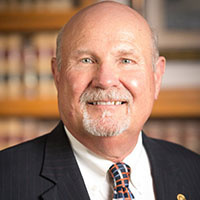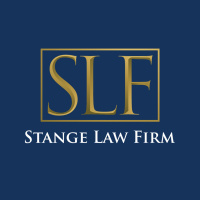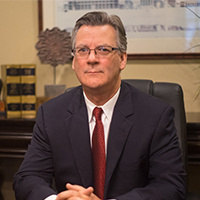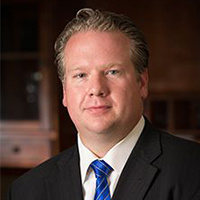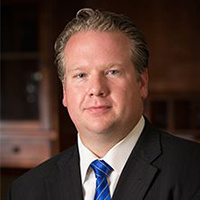 Hennessey White Collar Crime Lawyers, Oklahoma
Hennessey White Collar Crime Lawyers, Oklahoma
Sponsored Law Firm
-
 x
x

Click For More Info:
-
The Handley Law Center
111 South Rock Island P.O. Box 310 El Reno, OK 73036» view mapAccident & Injury, Wills & Probate, Criminal Taking Care Of You
At The Handley Law Center we get it. We represent clients throughout Canadian County and across Oklahoma in a wide variety of legal areas.
800-714-5951
Not enough matches for Hennessey White Collar Crime lawyer.
Below are all Hennessey Criminal lawyers.
Sponsored Lawyers
1-10 of 33 matches
Criminal, Accident & Injury, Divorce & Family Law, Estate, Oil & Gas
Fletcher Dal Handley, Jr., is a civil justice attorney with The Handley Law Center in Oklahoma. His practice is focused on Personal Injury Law, representing those injured in automobile and trucking accidents. He also practices in the area of toxic exposure, representing Oklahomans exposed to asbestos and other toxic substances. He maintains a sub-specialty in the area of oil and gas, representing mineral owners in the sale and lease of their minerals. He is both a civil and family law mediator.
(more)Divorce & Family Law, Juvenile Law, Child Custody, Prenuptial Agreements, Child Support
Going through a divorce or family law matter can be an emotional time. You may feel betrayed, lost, or overwhelmed. Having an attorney that can relate to you, and who focuses on divorce and family law, can make the process easier. Since our founding in 2007, we have dedicated our firm to the practice of divorce and family law because of the tremendous need for lawyers who focus on this area. We have since continued to grow and have over 25 offices throughout the United States. If you need help with a family law or divorce-related matter, our legal team can help guide you through the process. We have many offices in many local jurisdictions, which puts our firm close to you and your family. We have been ranked as one of the fastest-growing law firms in the United States by Law Firm 500. To schedule a consultation, you can contact us online today.
(more)Divorce & Family Law, Accident & Injury, Criminal, Estate, Immigration
Todd's 20 years of experience leads him to believe that, at bottom, the facts obtained regarding the issues of the case are the primary factors that lead to successful resolutions of lawsuits, whether it is an agreed settlement or a case tried to a judge or a jury.
(more)Commercial Insurance, Estate, Accident & Injury, Criminal, Personal Injury
What makes Dustin and his firm different is the deep emotional connection he builds with each client and the time he takes to get to know their trials, troubles, and tribulations. Dustin L. Compton, Founder and Managing Partner, has obtained Martindale-Hubbell's highest rating of AV® Preeminent™, an indication that his peers and judges rank him at the highest levels of professional excellence. Dustin has handled major litigation cases involving serious injuries, death, class actions, insurance disputes, estate litigation, serious crimes, serious divorce and custody disputes, complex criminal defense matters, and injured children. Dustin has received AVVO's "Client's Choice" honor and Martindale-Hubbell's Client Distinction Award. Dustin has taken on and won against the largest corporations and insurance companies in the United States. Most of Dustin's clients actually become life-long friends because he gives each client specific attention and believes that a key to his success is placing himself in his client's shoes by learning and understanding their unique and specific situation. Read some of their testimonials here. This standard also allows Compton Law to better understand your business and personal life so that we can help to come up with the best solutions for your goals. Dustin has had the opportunity to work for and with some of the finest and most respected attorneys in the United States, he has previously worked with others on some of the largest class action cases. He has tried multiple cases to a Jury verdicts, guided and counseled many small businesses, and focuses on building valuable, long-term relationships. The play-maker you need: Aggressive, motivated, and driven. I am very fortunate to be working a career that I love every day. I love the ability to help people succeed and what truly drives me is the ability to make a significant and positive impact in people's lives. I'm different in that I go out of my way to understand you, your current situation, your troubles, and tribulations. I want to get to know and understand your pain and pressure points so best help. Dustin's results speak for his hard work and the time he takes on each case. He is a member of the Million Dollar Advocates Forum (winning or settling a case for $1,000,000 or more) Super lawyer rising star 2013-2019, National Trial Lawyer Top 40 under 40, 2014, 2015, 2016, 2017 National Trial Lawyer Top 100, and has achieved other case results seen here. When Dustin is not working hard for his clients he enjoys spending time with his wife, Carrie, and ten-year-old daughter, Addysen.
(more)Divorce & Family Law, Bad Faith Insurance, Criminal, Estate
Accident & Injury, Car Accident, Criminal, Bad Faith Insurance, Litigation
What makes Dustin and his firm different is the deep emotional connection he builds with each client and the time he takes to get to know their trials, troubles, and tribulations. Dustin L. Compton, Founder and Managing Partner, has obtained Martindale-Hubbell's highest rating of AV® Preeminent™, an indication that his peers and judges rank him at the highest levels of professional excellence. Dustin has handled major litigation cases involving serious injuries, death, class actions, insurance disputes, estate litigation, serious crimes, serious divorce and custody disputes, complex criminal defense matters, and injured children. Dustin has received AVVO's "Client's Choice" honor and Martindale-Hubbell's Client Distinction Award. Dustin has taken on and won against the largest corporations and insurance companies in the United States. Most of Dustin's clients actually become life-long friends because he gives each client specific attention and believes that a key to his success is placing himself in his client's shoes by learning and understanding their unique and specific situation. Read some of their testimonials here. This standard also allows Compton Law to better understand your business and personal life so that we can help to come up with the best solutions for your goals. Dustin has had the opportunity to work for and with some of the finest and most respected attorneys in the United States, he has previously worked with others on some of the largest class action cases. He has tried multiple cases to a Jury verdicts, guided and counseled many small businesses, and focuses on building valuable, long-term relationships. The play-maker you need: Aggressive, motivated, and driven. I am very fortunate to be working a career that I love every day. I love the ability to help people succeed and what truly drives me is the ability to make a significant and positive impact in people's lives. I'm different in that I go out of my way to understand you, your current situation, your troubles, and tribulations. I want to get to know and understand your pain and pressure points so best help. Dustin's results speak for his hard work and the time he takes on each case. He is a member of the Million Dollar Advocates Forum (winning or settling a case for $1,000,000 or more) Super lawyer rising star 2013-2019, National Trial Lawyer Top 40 under 40, 2014, 2015, 2016, 2017 National Trial Lawyer Top 100, and has achieved other case results seen here. When Dustin is not working hard for his clients he enjoys spending time with his wife, Carrie, and ten-year-old daughter, Addysen.
(more)


 Fletcher Dal Handley El Reno, OK
Fletcher Dal Handley El Reno, OK Practice AreasExpertise
Practice AreasExpertise